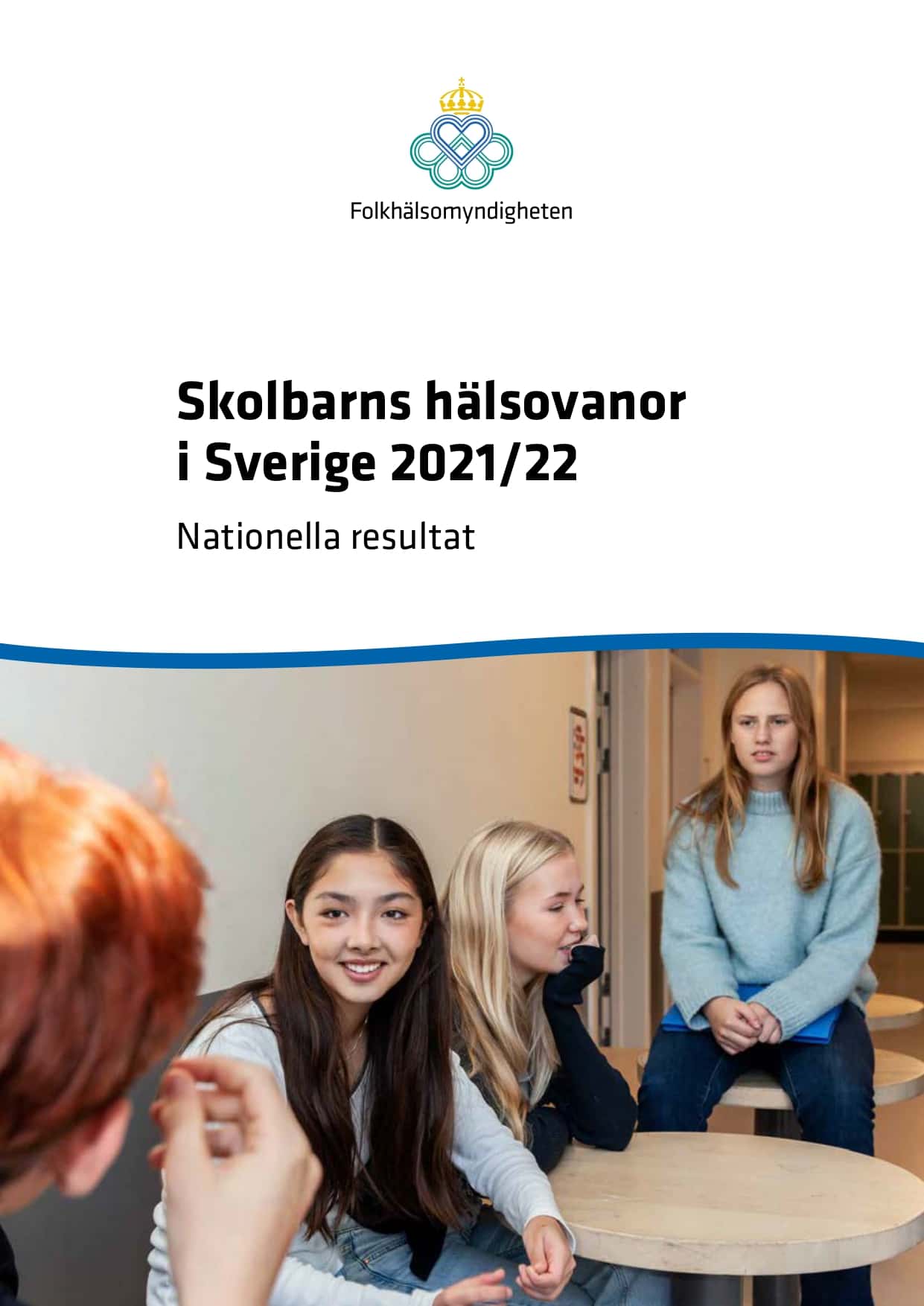The 2021/22 Health Behaviour in School-aged Children (HBSC) survey results in Sweden reveal concerning trends among the nation’s 11, 13, and 15-year-olds, including declining school satisfaction, rising alcohol and snuff use, decreased condom use, and increasing health complaints.
The latest HBSC study, which has been carried out every four years in Sweden since 1985/96, allows the Public Health Agency of Sweden to identify key trends and areas of concern in child health behaviours, published in their latest national report: Skolbarns hälsovanor i Sverige 2021/22 Nationella resultat.
The data, collected from November 2021 to May 2022, involved an expanded sample of 41,000 children from 2,329 schools across all 21 Swedish regions, allowing for the assessment of regional health patterns and differences (presented in a separate report: Skolbarns hälsovanor i Sverige 2021/22 Regionala resultat).
Key trends and observations
Parent-child communication: Most children find it easy or very easy to talk to their parents about things that bother them. This positive trend has remained stable since the study’s inception in 1985/86.
School rxperience: School satisfaction has continued to decrease since 2013/14. Children report increasing schoolwork pressure and deteriorating classmate support, and more children experience bullying.
Digital life: While many children engage intensively with friends and family online, a small fraction was classified as having problematic use of social media.
Physical activity: Few children meet the recommended 60 minutes of moderate-to-vigorous physical activity daily. A concerning trend sees a third of boys and girls spending most of their free time sitting.
Eating behaviours: Fewer children eat breakfast every day, although many still eat meals with their families. The consumption of daily vegetables increased, while sugared soft drink intake decreased. Daily fruit consumption and sweets and chocolate intake remained unchanged.
Alcohol and tobacco use: Alcohol consumption, although in a general downward trend, shows signs of plateauing. An increase in alcohol use amongst 15-year-old girls and boys and 13-year-old girls is noteworthy. Snuff use, particularly among 15-year-old girls, and cannabis use among 15-year-old boys, increased.
Health and well-being: Despite rating their health as good or excellent, more children reported having a doctor-diagnosed long-term illness, disability, or medical condition. Condom use has halved during the 2010s, with girls more likely to receive information about sexuality and relationships. Girls reported lower well-being and self-esteem while also more frequently feeling ‘too fat.’ Boys more commonly reported feeling ‘too thin.’
Health complaints: An increasing number of children report multiple health complaints. The most common complaints are feeling irritable or bad-tempered, feeling low, and experiencing sleep difficulties.
Priorities for action
The data from the latest HBSC Sweden report reveals four areas that require immediate attention:
Declining school satisfaction and rising schoolwork pressure: Strategies within the school environment to improve students’ mental health and well-being should be a priority.
Increasing alcohol and snuff use: Given the vulnerability of children and adolescents to the detrimental effects of these substances, the need for effective interventions is urgent.
Decreased condom use: The proportion of 15-year-olds using a condom during their last sexual intercourse has halved since the 2010s. The causes and consequences of this trend warrant further investigation.
Increasing subjective health complaints and long-term diagnosed conditions: More girls and nearly half of all boys reported multiple health complaints, with almost a third of 13 and 15-year-olds indicating they have a long-term illness, disability, or medical condition. Exploring the reasons and effects of these trends is critical.
The HBSC study continues to uncover crucial insights into children’s health behaviours. We urge stakeholders – educators, policymakers, health professionals, and parents – to respond proactively to these alarming findings. Only through coordinated action can we safeguard the health and well-being of our future generations.
Download the report (Swedish)
